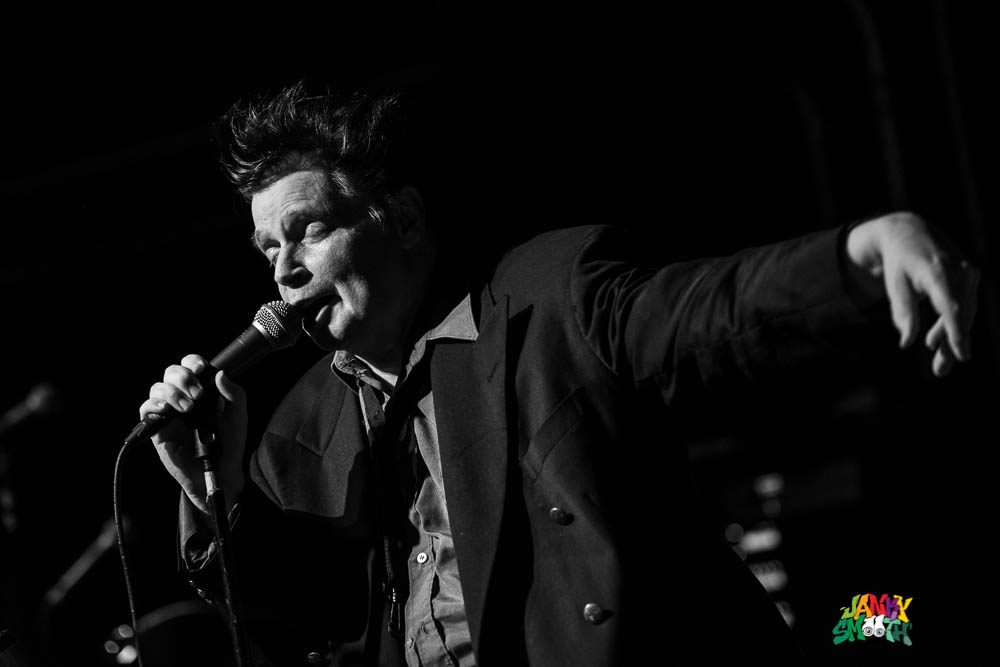
James Chance and the Contortions
Following the Contortions’ stirring performance at Zebulon in Los Angeles Friday night, I had the honor to sit down with one of the most influential pioneers in experimental music: a saxophonist, keyboard player, songwriter and singer from New York City, Mr. James Chance. People may affiliate his music with the 1979 No New York compilation and other no wave acts, but Mr. Chance would vehemently protest and describe himself as an original before any other label.
AK: You’ve had many different projects: The Contortions, The Flaming Demonics, James White and the Blacks and Teenage Jesus and the Jerks. What compelled you to revisit the Contortions in recent years, versus the others?
JC: I took a break from the music business in the early ‘90s for a few years because there was just nothing happening. I got sick of the business aspect of it. When I came back, Henry Rollins started this reissue label and reissued all of this stuff from 1980, which made me decide which name I wanted to use and I just decided. I’ve been using James White and the Blacks throughout the 80s, so I decided to go back to the Contortions and I’ve been using that for 20 years, since ’95 or 96. It’s my favorite name, because I wanted a name that sounded like the Temptations, but it with a twist to it.
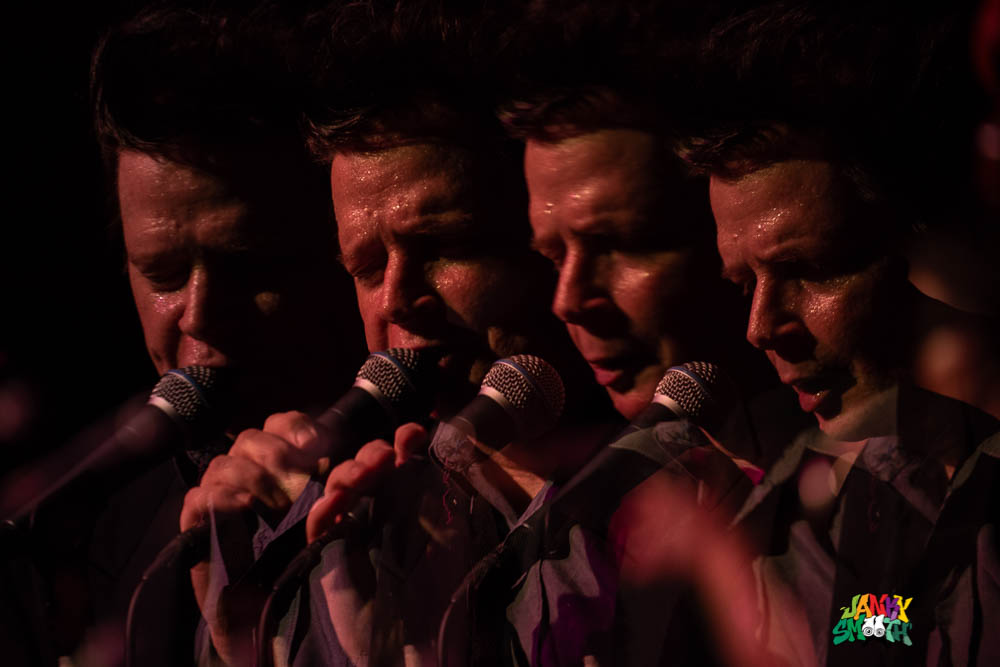
AK: Let’s talk about the music video for your single, “Melt Yourself Down”, which was featured in your 2016 album, “The Flesh is Weak”. What compelled you to re-release this single from decades ago? Does it still hold the same meaning, or has it taken on something new and different?
JC: That song was written around 1979 or ’80, right after the Three Mile Island nuclear accident. I recorded it several times, once in an album called “Melt Yourself Down,” but that only came out in Japan. I stopped playing it for a long time and I’m not sure why, but somehow we started playing it again and I developed this whole rap that has nothing to do with the original idea of the song. It’s all about concentration camps and the C.I.A. and all that stuff. It was just fun for me to do because I’m a great history fan. I read a lot of history and I know a lot about it. This gives me the chance to work some of it into my act and maybe teach people about some stuff they don’t know about.
AK; What inspired you to move from Milwaukee to New York?
JC: Music, at that time. I was totally into jazz and my big ambition was to become a famous jazz musician. Milwaukee was not a good town for jazz in those days at all. New York was where everything was happening in jazz. It still is, but especially at that time. During the same time that punk rock was happening, there was a huge jazz scene. Besides that, I always had an ambition to go to New York. It’s the place to go. But, after I got there and I started playing jazz, I realized I was never going to make it in the jazz scene. My whole image and style was too rock n’ roll for the jazz audience, especially at that time, which was a bunch of aging, intellectual hippies and they just couldn’t relate to me. They couldn’t figure me out at all.
AK: And New York’s the birthplace of many other artistic movements, like the Harlem Renaissance, avant-garde filmmaking and modern dance. What, in your experience, made it a hub for artistic freedom?
JC: It’s probably because everyone was so crowded together. It’s not so much anymore. Now it’s just sort of a haven for rich people but at the time I moved to New York, everyone else was leaving and everyone was going bankrupt. It was only the crazy people and the people who wanted to become artists who moved to New York, moving into all of these abandoned lofts and blasted neighborhoods. Of course a few years later, it was all gentrified and we were all pushed out of it.
AK: Do you think Detroit could be the next place for artistic freedom?
JC: Detroit? Maybe. It’s totally different now because of the internet. Things aren’t oriented around a particular place anymore, as much. The scene, then, was totally oriented around two clubs: CBGB’s and Max’s, which were a quarter-mile apart. It was incredible, how intensely everyone was focused on those little clubs and this little scene. We went out every night and we didn’t care about anything else. We didn’t care about politics, or any of that sh*t, you know?
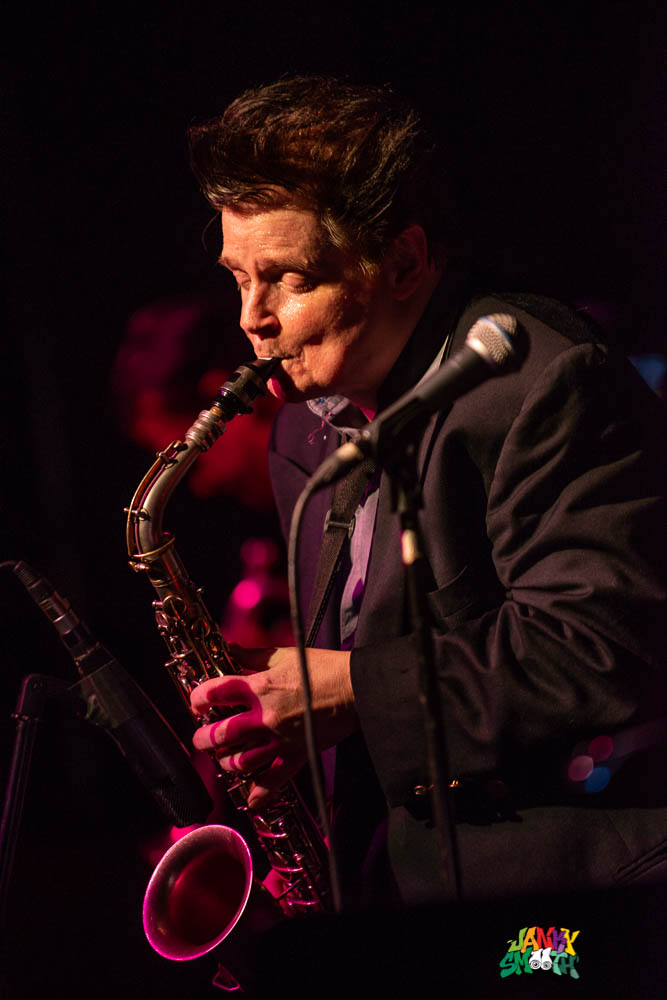
AK: Whether it’s Lizzy Mercier Descloux, Liquid Liquid or Glenn Branca, so much diversity falls under the “no wave” umbrella. As a pioneer of the genre, what, in your mind, was the glue that bound it together?
JC: Well you see, I was part of the original no-wave, but what I’m doing now isn’t no wave. I haven’t really done actual no wave for a long time. The four bands on “No New York” are the ones that really started it, but they all broke up within a year or two of that album coming out and the people went on to something else. The term “no wave” was coined by a writer. We did not describe what we were doing as no wave or think of us as some type of coordinated movement. What I was doing had some similarities to no wave, but a lot of things were also different. I always wanted my music to be danceable, to have a strong and funky beat, and I wanted it to appeal to a wider audience than bands like Mars.
AK: I think that’s because of the quality of musicians you’re known to play with.
JC: That’s the difference. Because with other no wave bands, they were basically, what you might call, amateur musicians. They were all people who were some other kinds of artists before and just picked up instruments and started playing. I had a couple of people like that for a while, but then I had others in the rhythm section who were actually trained musicians. So, that was another big difference between me and other no- wave bands.
AK: Aside from Debbie Harry or Lydia Lunch, you played with all kinds of funk and jazz musicians from all over the world, some as far as Nigeria. What qualities do you look for when choosing collaborators?
JC: I don’t really have collaborators. I have side men. I’m the leader. I write the range and 90 percent of the music. Sometimes the band contributes something, but it’s basically my music. I’m the boss. They all work for me. They’re side men, but there’s nothing wrong with that. The guys I have in the band now have all been with me for years and years, except for the guitarist. The drummer’s been with me since ’86 and the bass and trumpet players have been with me since the ‘90s. My musicians are very loyal to me. They like to play my music because they have a lot of freedom aside from what’s written. As long as they learn their parts, they can interpret them anyway they like. Basically, I need people who are trained musicians, who can read music but who are also able to play creatively, who can play good solos and who can also interpret the music without a massive amount of instruction on my part. Usually, I use older musicians, because I haven’t met many younger guys in their twenties or thirties who are good enough.
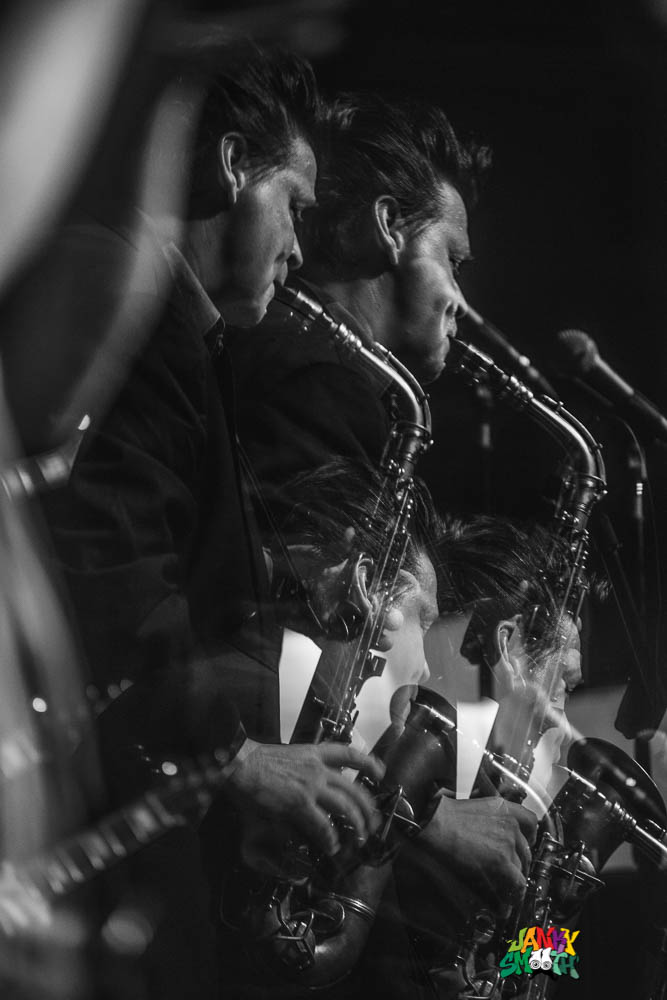
AK: In your mind and experience, are there any art current movements that are pushing the boundaries, similarly to how you or your contemporaries did?
JC: I really don’t know, because I really don’t pay much attention to younger rock n’ roll bands. There’s so many of them and there’s no way for me to know which ones are any good. I don’t have time to listen to 100 bands. Anyway, the music that inspires me is all older music. Ninety percent of what I listen to was recorded before 1980 and a lot of it was recorded in the ‘60s or before. That, what I think, was the greatest era of music. And most of my favorite musicians are dead.
AK: You’ve stayed headstrong in your style and sound despite a changing world around you, so what’s the best advice you can give to up-and-coming artists living in today’s world?
JC: Well, my best advice would be to give up music. Don’t play music if you want to make any money. That’s where the problem lies, because all of the musicians I’ve met have full-time day jobs and try to play music at the same time as that and that’s a hard thing to do. Sure, you can play, but it doesn’t really give you the time and energy to zero in on your craft and on your creativity. Back in the no wave days, none of us had jobs, or if we did, they were just part-time little jobs that didn’t last very long. It was so cheap to live. My first apartment on the Lower East Side was $110 a month. It was so incredibly cheap, that we were able to just concentrate on what we were able to do. Young people today don’t have that luxury, unless they’re, you know, trust fund babies, and I don’t think I’ve ever met someone like that who was a creative genius. Growing up rich is not conducive to creativity, in my experience, except for maybe Toulouse Lautrec.
AK: What factors have to be present for artistic creativity to take place?
JC: You can’t think about it too much, you just have to do it. Thinking and theorizing about it is counterproductive, in my opinion. That’s for the critics. You have to have the inspiration within you. If you don’t have it, you’re never going to do anything that’s really good. Most people that make it today are really good at self-promotion, which is a whole different thing. Most people that are really creative aren’t good self-promoters. They are opposite qualities. I’ve never been good at self promotion. I mean, I had Anya for a while to help me, but after she died, I had great difficulty.
AK: In the past, you played at SO36 in Berlin and Les Bains Douches in Paris. How is touring in Europe different from that of America?
JC: It’s not really financially profitable to take a whole band from New York to Europe now, so I have a band in France that backs me up when I go to Europe. They’ve been playing with me for a long time, for 10 years now. They also got me a band in Australia. The only other country that I can afford to go to with my New York band is Japan.
AK: And how has Japan treated you?
JC: People are real fans in Japan, you know? They’re extremely enthusiastic. They’ll run after you to get your autograph and they’re also very polite. I always have a really good time in Japan. They’re super organized and they’ll sit through the entire day to interview you.
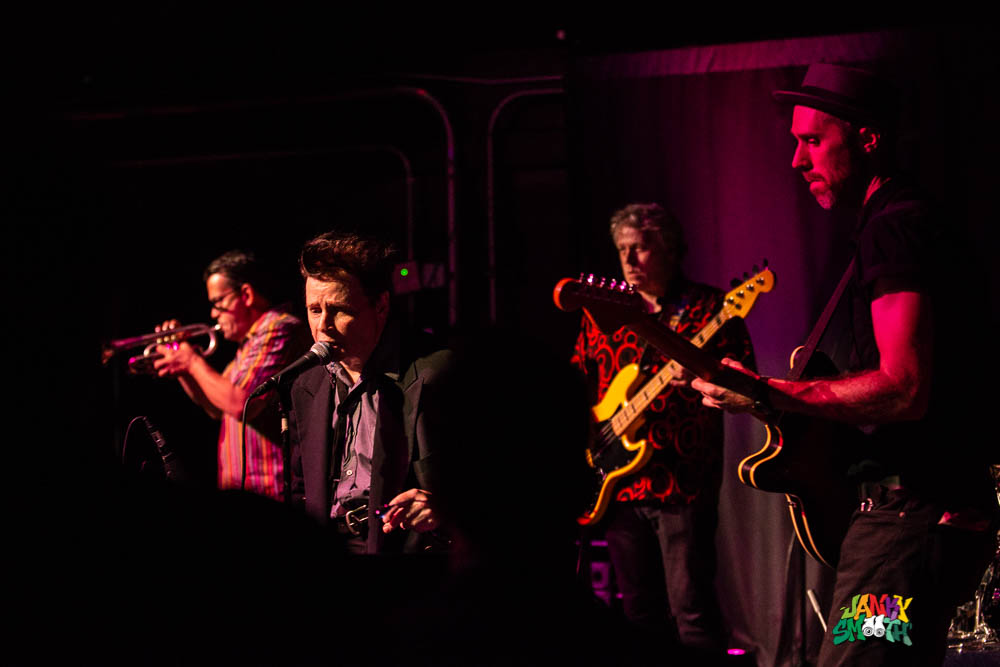
AK: What was your all-time favorite venue to play at?
JC: Paris had always been good to me, and New York, but sometimes New York can be a pain in the ass. The last time I played in Japan, I played at the Tokyo Blue Note Jazz Club, which is the fanciest club I’ve ever played at in my life. They had all of these waiters in white tuxedo jackets. We played two shows a night, on Thursday, Friday and Saturday. That’s the kind of thing I like to do: a stand, which very rarely happens anymore. Back in the days at CBGB’s or Max’s, you played the whole weekend. You played the same thing, Thursday, Friday and Saturday, two sets a night. You can really build an audience that way. But then later it just got to be, I think, that people’s attention spans got shorter and there got to be so many bands all wanting their chance to play, that it just got to be what it is now. It would be one night and five other bands on the bill, all of these terrible bands willing to play for nothing, so they can indulge their fantasy of being a rock n’ roll star.
AK: And other than musicianship, what does it take to be a rock n roll star?
JC: It doesn’t take musicianship. In fact, it’s a handicap. What it takes is really good promotion to be a star. Most pop music now — it all sounds the same — because most of the singers can’t really sing. What they do is put them through this machine that puts them in tune and makes them all sound the same.
AK: Outside of your many achievements, what is the one thing you want the world to know about you?
JC: I don’t want the world to know anything about me. My music is my statement. Let the music speak for itself. As for the artists who aren’t in it for the money, find your own voice. It doesn’t matter about technique so much. You got to have originality. If you want to be a leader, you have to have originality. I think that’s the one thing that’s lacking today. It’s kind of a paradox; the more music people listen to, the harder it is for people to find their own voice.
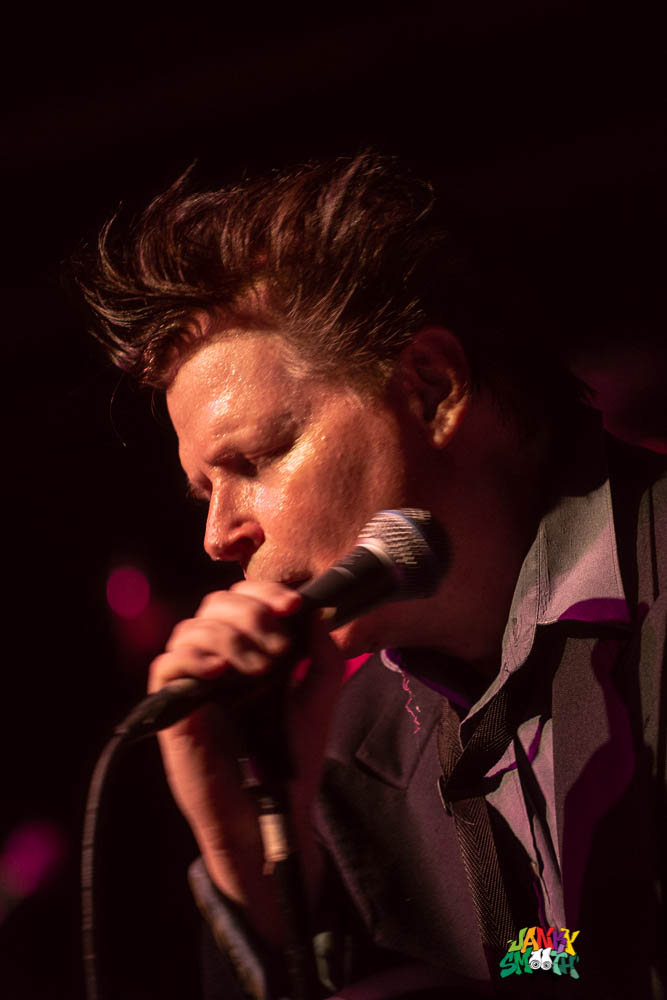
Questions by: Audrey Kemp
Photos by: Jessica Moncrief




